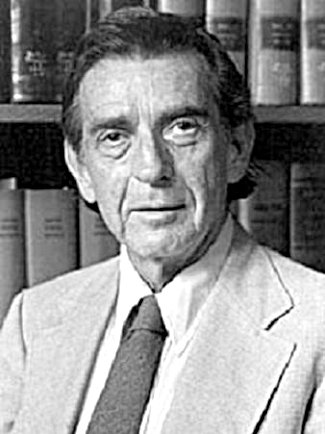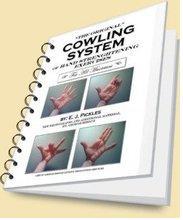FAMOUS JAZZ MUSICIANS:
Louis Armstrong's art transforms a white Southerner
![LOUIS ARMSTRONG - Already a famous Jazz musician in his early twenties One of the most, if not THE most famous Jazz musicians - LOUIS ARMSTONG [in his twenties]](https://www.make-music-better.com/images/LOUIS_ARMSTRONG_1932_V.jpg)
Does music have a purpose beyond aesthetic enjoyment? A societal purpose?
We know that playing music enhances the person, his intellect, his awareness. And we also know that even experiencing music can greatly benefit the quality of life a human being.
The playing and "consuming" of music actually does help the economy directly, etc. The direct benefits can be easily tracked and staticised.
A "larger picture" of the effect of one famous Jazz musician:
But now, To illustrate the "collateral" aspects of music, I would like to relay the following story, from Ken Burns' magnificent documentary: "JAZZ", as an example of the tremendous benefits that music gives to society - benefits that cannot be precisely measured and put into "statistics", but perhaps even more profound and important to our culture:
Here's the story:
================
On the evening of October 12th, 1931, Louis Armstrong opened a three-day run at the Hotel Driscoll in Austin Texas. Among those who paid 75 cents to get in that night was a freshman at the University of Texas named Charlie Black.
He knew nothing of Jazz. Had never even heard of Armstrong. Who was already considered at the top of the list of famous jazz musicians. Charlie just knew there were likely to be "lots of girls to dance with."
Then, Armstrong began to play.
“Steam-whistle power, lyric grace, alternated at will, even blended," Charlie Black recalled. "Louis played mostly with his eyes closed; just before he closed them they seemed to have ceased to look outward, to have turned inward, to the world out of which the music was to flow."
"He played mostly with his eyes closed, letting flow from that inner space of music, things that had never before existed.
""He was the first genius I had ever seen...The moment of first being, and knowing oneself to be, in the presence of genius, is a solemn moment; it is perhaps the moment of final and indelible perception of man's utter transcendence of all else created. It is impossible to overstate the significance of a sixteen-year-old Southern boy's seeing genius, for the first time, in a black."
"You don’t get over that. You stay young awhile longer, with the hesitations, the incertitudes, the half-obedience to crowd-pressure, of the young. But you don’t forget. The lies reel, and contradict one another, and simper in silliness, and fade into shadow. But the seen truth remains.
"Through many years now, I have felt that it was just then that I started toward the Brown case, where I belonged. … Louis opened my eyes wide, and put to me a choice. Blacks, the saying went, were ‘all right in their place.’ What was the ‘place’ of such a man, and of the people from which he sprung?”
~ Charlie Black

Charlie Black went on to become Professor Charles L. Black, a distinguished teacher of constitutional law at Yale.
In 1954, he helped provide the answer to the question Louis Armstrong's music had first posed for him. He volunteered for the team of lawyers, black and white, who finally persuaded the Supreme Court, in the case of BROWN vs. THE BOARD OF EDUCATION, that segregating school children on the basis of race and color was unconstitutional.
Charles Black further observed, in 1957:
"I'm going to close by telling of a dream that has formed itself through the years as I, a Southern white by birth and training, have pondered my relations with the many Negroes of Southern origin that I have known, both in the North and at home.
"I have noted again and again how often we laugh at the same things, how often we pronounce the same words the same way to the amusement of our hearers, judge character in the same frame of reference, mist up at the same kinds of music. I have exchanged 'good evening' with a Negro stranger on a New Haven street, and then realized (from the way he said the words) that he and I derived this universal small-town custom from the same culture...
"These and thousands of other such things have brought me to see the whole caste system of the South, the whole complex net of its senseless cruelties and cripplings, as no mere accidental grotesquerie of history, but rather as that most hideous of errors, that prima materia of tragedy, the failure to recognize kinship...
"My dream is simply that sight will one day clear and that each of the participants will recognize each other."
Famous Jazz Musicians:
In conclusion:
I feel that the above is but one of endless examples of the power of music to transform the very being of any and all individuals. To transcend a person from being mundane, unaware and "normal", to being one of the enlightened, compassionate and courageous - and, as in this case of this famous Jazz musician - without the even the overt intention to do so.
This, then, is one of the true powers of music: to bestow beauty and humanity to both the creator and the listener.
Also of interest:
- The Music Education Blog -- News and vital info on music education and resources for all teachers, students and players of music.
- MUSIC AND INTELLIGENCE - The Power of Music -- How related are MUSIC and INTELLIGENCE? Derek Paravicini, Rex Lewis-Clack, and Matt Giordano show us the answer.
- ABSOLUTE PITCH [Perfect Pitch] - We all have it. How do we develop it? -- Find out.
- AND: How to REALLY improve your musicianship, starting with your own hands!
THIS "SECRET METHOD" TO INSTRUMENTAL MASTERY HAS BEEN "HIDDEN IN PLAIN SIGHT" FOR OVER A CENTURY!
But now, it has been REDISCOVERED! And YOU can enjoy the amazing benefits of it:
This Method Book Can ABSOLUTELY "Supercharge" YOUR Practice Routine - on ANY Instrument!
Find out more, or:
Buy It NOW On Amazon [Physical Paperback]:
or:
Get the PDF by clicking here:
"I’ve been playing a long time and really want to take my speed and accuracy to the next level! The first lesson...WOW! I’m a believer!!" ~ Will Suddeth, March 2020
And the accolades continue: David Grisman [above] uses "The Original" Cowling System:
DOWNLOAD "THE ORIGINAL COWLING SYSTEM©" -- PDF "E-BOOK" - 70 pages [$22.50 via PAYPAL secure]
THE SOFTCOVER PHYSICAL BOOK IS BACK IN PRINT! - Available at Amazon.
And still more [actual and unsolicited] rave reviews for "The Original" Cowling System:
-----------------
FROM A VIOLINIST:
"The Cowling System © is a set of 12 exercises designed to increase the flexibility and strength of the hand, wrist, and fingers.
"I bought the course in 1978 and have found them to be invaluable.
"I've kept them all these years and still use them to warm up with before playing."
~ Richard Barton posted on VIOLINIST.COM
-----------------
FROM A BASS PLAYER:
?"My fingers actually DO what my brain tells them to do, WITHOUT getting confused."
~ Anthony Jerome Smith, 35-year veteran bass player.
-----------------
FROM A PIANIST:
"In 1976, my teacher gave me his copy of all the exercises, whereupon I made xeroxed pages to put in a binder.
"My teacher was amazed at my progress that in a year I could play, for example, the prelude #17 of Chopin!
~ "RPN58" (from a pianists' discussion board in England, 2006)
-----------------
FROM A GUITARIST:
"I was introduced to the Cowling System © in the 1980's by a violinist in his seventies, who had amazing dexterity on his instrument for HIS age.
"Through the use of the COWLING SYSTEM ©, I went from "amateur" to an "A" level in music in a very short number of years.
"I have been using the exercises continuously since my friend gave them to me and believe me - THEY WORK."
~ Don Wills Guitarist, Great Britain
-----------------
FROM A VIOLINIST:
"I must say I am highly delighted with the way my fingering has improved since I commenced your hand strengthening exercises.
"Recently, I became very depressed about my playing and almost decided to give it up, but now I feel it's a pleasure, thanks to the Cowling System. ©"
~ "THE VIOLINIST" Magazine, December, 1924
I'd love to see YOUR testimonial on this list! If you really do "THE ORIGINAL" COWLING SYSTEM © of Hand Strengthening Exercises", you CAN master and truly enjoy your music!








